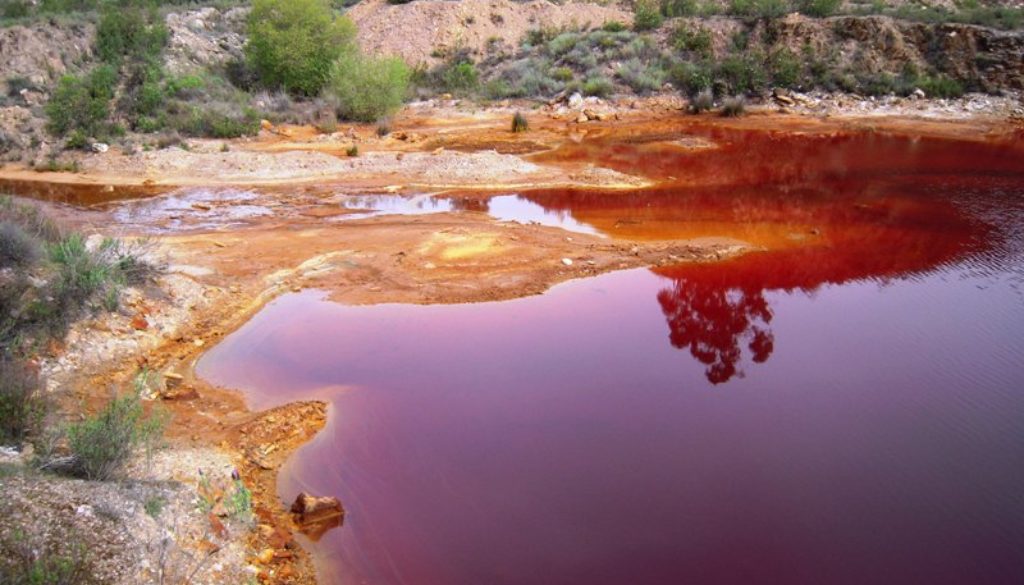EPA Plans to Gut Its Ability to Curb Water Pollution
By Jon Devine, Natural Resources Defense Council
Did you think that EPA buying “Tactical Pants” was the silliest thing you’d hear about Administrator Scott Pruitt this month? Hold on — there’s a new entry. EPA put out a press release announcing that Pruitt signed a memo to other EPA officials, ordering them to start drafting a proposed rule that would curb EPA’s ability to protect waterways from extreme harm.
This is the second time in a few weeks that Pruitt announced a ho-hum action with great fanfare. (He also celebrated sending a draft of a proposed rule across town to the Office of Management and Budget recently.) I’ve been working on federal environmental policy for my entire career, and I can’t remember seeing anything like these odd announcements. That makes me think that Pruitt must be terrified of losing his job; making a big show of this memo when he could’ve gotten identical results by calling his staff from his soundproof phone booth reflects his desperation to be seen by the President as a go-getter in eliminating health and environmental safeguards.
As goofy as it is for Pruitt to do a big song-and-dance about an internal rulemaking scheduling memo, and as tempting as it is to simply laugh this off, the announcement this week warrants attention because it reflects how reckless Pruitt is and how little he cares about protecting people from polluted water.
Pruitt’s memo directed several top EPA officials to develop a rule that purposefully throws away authority the agency has under the Clean Water Act. The scheme specifically involves part of the Act giving EPA and the Army Corps of Engineers different responsibilities for discharges of “dredged or fill material.” Under the law, the Corps issues permits for particular discharge projects, but EPA has oversight responsibility to ensure water quality doesn’t suffer. One example of that backstop role is that the law authorizes EPA to limit these discharges “whenever” the agency finds it “will have an unacceptable adverse effect on municipal water supplies, shellfish beds and fishery areas…, wildlife, or recreational areas.”
If implemented, Pruitt’s suggested rule would go after this important authority, often called an EPA “veto.” It would ignore the law’s use of “whenever” in describing when EPA can act and intentionally hamstring EPA from stopping an egregious dumping project in two ways, so that the agency could not exercise a veto either before a discharger submits a permit application or after the Army Corps issues a permit. Pruitt’s plan is terrible, for several reasons.
- First, in just the last several years, we have textbook examples of each of those scenarios where EPA action was essential. Using this authority, the Obama administration EPA appropriately proposed to restrict mine waste dumping planned for the Pebble Mine — a toxic gold and copper mega-mine posing catastrophic risks to Alaska’s Bristol Bay, as my colleague Taryn Kiekow Heimer explains in her analysis of Pruitt’s new memo. Likewise, EPA rightly stopped a mountaintop removal coal mine in West Virginia from dumping its waste in more than six miles of Appalachian streams, correcting an error made by the Corps in permitting the dumping. A federal appeals court upheld that decision, and the Supreme Court chose not to reconsider the appellate ruling, despite urging from Pruitt (as Oklahoma Attorney General) and others to limit EPA’s authority.
- Second, Pruitt would require EPA regional chiefs to get Headquarters permission before even starting the process of restricting dumping. That’s hypocritical, as Pruitt often derides D.C. decision-makers as being out of touch and unaware of the on-the-ground impacts of their policies. Moreover, since Pruitt’s planned rule would slash EPA’s window to act on a veto, Headquarters officials that want a dumping proposal to proceed but don’t want to be held responsible for derailing attempts to curb its impact could stymie any regional staff who might otherwise initiate a veto by simply sitting on a request to get started.
- Third, this is a solution in search of a problem. Compared with hundreds of thousands of permits the Corps has issued since 1972, EPA has only ever “vetoed” 13 times. EPA uses its authority sparingly, when harm is truly extreme and unacceptable.
- Fourth, think about what’s really happening here. It’s hard to imagine Pruitt ever using this important authority, given his abysmal record on water pollution – and, frankly, everything — to date. So, why devote staff time and taxpayer money to developing a new regulation? It’s nothing more than a cynical effort to insulate his polluter friends from oversight by hamstringing his successors’ ability to stop destructive projects.
- Finally, Pruitt’s latest attack on clean water safeguards continues his all-out assault on scientific integrity, exemplified by his recent proposal to limit the kinds of scientific studies EPA will consider in developing regulations. In his new memo attacking EPA’s veto authority, Pruitt shows off his disdain for fact-based decision-making when he says EPA should throw away its authority simply because he’s “concerned that the mere potential of the EPA’s use of its section 404(c) authority before or after the permitting process could chill economic growth by short-circuiting the permitting process.” Does he have any support for these suppositions upon suppositions? Nope.

